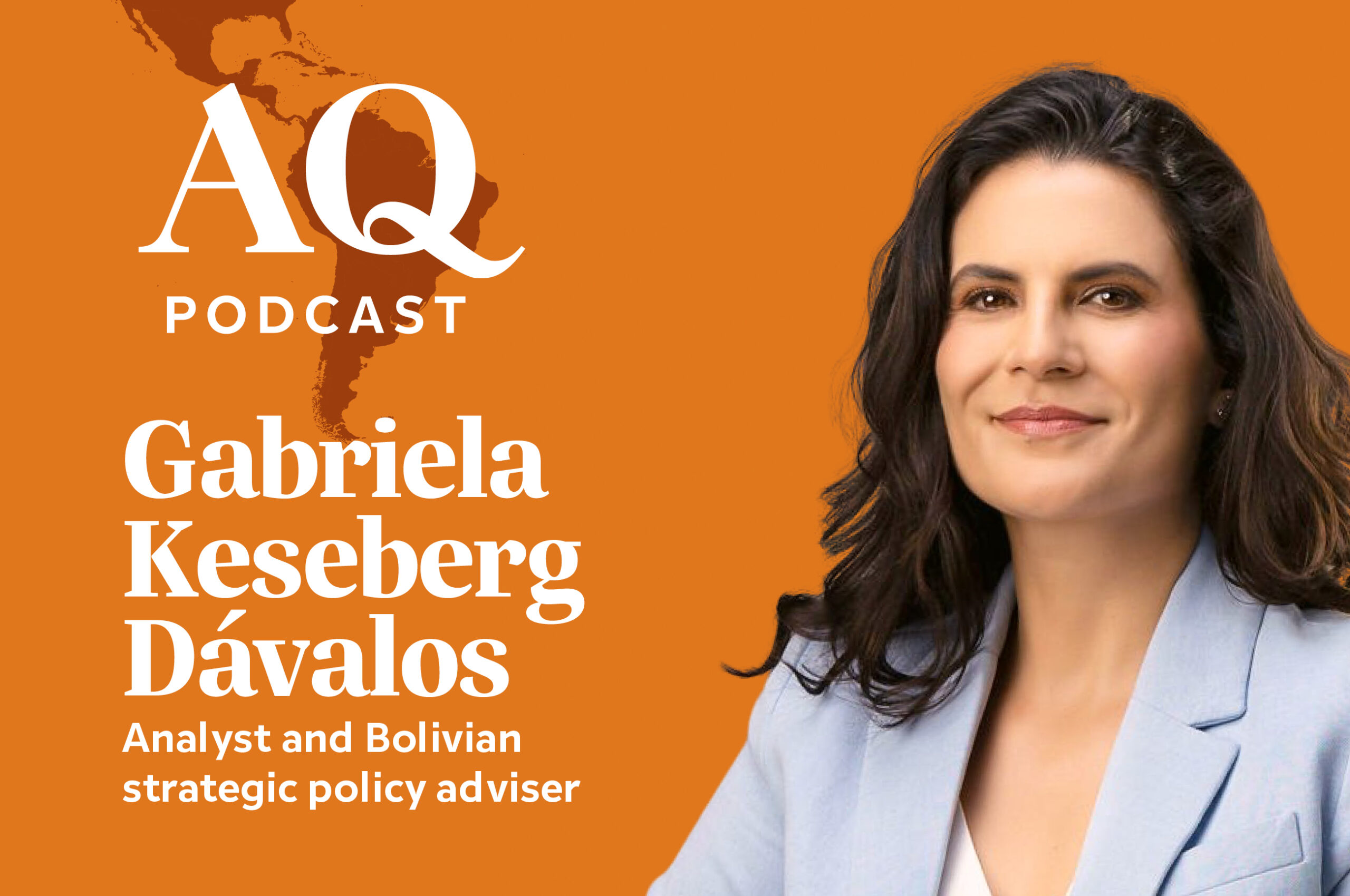Remarks: AS/COA President and CEO Susan Segal at the 2014 São Paulo Conference
Remarks: AS/COA President and CEO Susan Segal at the 2014 São Paulo Conference
Read remarks by AS/COA's Susan Segal on Brazil's potential, delivered at the 2014 Latin American Cities Conference in São Paulo.
REMARKS AS PREPARED FOR DELIVERY
Location: São Paulo, Brazil
Prezados convidados, bom dia! Gostaria de agradecer a presença de todos e dizer que estamos muito felizes de estarmos de volta em São Paulo.
Eduardo Campos, governor of the state of Pernambuco; Liliana Ayalde, U.S. ambassador to Brazil; AS/COA members, special guests: I would like to extend a warm welcome to all of you here with us today.
We are being joined by an even larger audience from around the world via our live webcast of today’s event. So I want to welcome everyone tuning in online, and I want to thank our global webcast sponsor, Telefonica. We will also be live tweeting throughout the conference, so I invite you to tweet with us using the hashtag PanoramaBR—and I will be tweeting too, so tune in!
This event is made possible through our pan-regional Latin American cities series sponsors: AES, Citi, J.P. Morgan, Microsoft, N.E.C., and Pepsico; and through our corporate sponsor: Standard and Poor’s. I would also like to thank CAF for their support, as well as our media sponsor, The Financial Times.
Thank you all so much. Muito obrigada.
Finally, many thanks to my team for their wonderful work in the organization of this conference: Natalia Williamson, Diogo Ide, and Luisa Leme.
This is an exciting year for Brazil, between the elections and the World Cup, which will bring millions of domestic and international tourists to Brazil’s 12 host cities to watch Brazil win ….. Well, maybe!
As we all know, Brazil faces many challenges over the next few years. But where there are challenges, there are also opportunities – and in the case of Brazil, I would say there are huge opportunities.
In spite of some volatility, Brazil continues to be the investment destination in the region. It was the fourth largest recipient of foreign direct investment in the world, and the main recipient in Latin America in 2013, responsible for 47% of the region’s total.
Growth was better than expected last year in the country, supported by high levels of investment, which increased 6.5% up to the third quarter of 2013. And as U.S. numbers pick up – with a forecasted 3.1% growth for this year and 3.4% for the next – prospects for the global economy and the region look more promising.
Wealth in Brazil is no longer solely concentrated in the southeast, but is being redistributed throughout the country by a rising and newly empowered middle class. This new force has created an important consumer market that is pushing the economy forward, and simultaneously demanding improvements in education, healthcare, transparency, and urban transportation, which should ultimately lead to better public policies for the nation.
After a decade of strengthening the domestic market through social inclusion policies, the challenge today is how to generate and maintain sustainable future growth that creates high-quality jobs and effectively addresses the demands of the new middle class. I believe so much of Brazil’s opportunity lies in education, competitiveness, and entrepreneurship.
Today, Brazil is heavily investing in education, with initiatives like Pronatec, which will expand technical schools around the country, and the science mobility program, which will send 100,000 STEM undergraduates abroad to the world’s best universities. With 75% of oil royalties going to education, the ministry’s budget will increase by $35 billion over the next 10 years, allowing for new and better investments in Brazil’s students.
And while there is still a way to go, we are also already beginning to see important policy changes around competitiveness in the country, including the recent infrastructure concession program, which will reduce costs for all industries. It is the biggest logistics overhaul program in the world, with $88 billion of investments needed. The program will address bottlenecks by expanding and building new roads, ports, airports, and railways to connect people living in different regions and facilitate trade flows in and out the country.
And I am certain that the greatest potential for the nation is in its people. Brazil is one of the most entrepreneurial countries in the world. Despite the obstacles, 30% of adults here are either trying to launch a business or already own a venture less than 42 months old.
That is in comparison to 22% of adults in my country. And the story is even better for women, who in the last three years headed 52% of small and medium enterprises.
These entrepreneurs are driving growth—small and medium-sized companies make up 20% of Brazil’s GDP and over 50% of the country’s formal jobs. Efforts to reduce barriers and boost innovation will help transform these entrepreneurs into an even stronger engine of growth for the country.
This is an exciting time for Brazil. And to discuss some of these critical issues, we have with us today an amazing lineup of speakers who will discuss the upcoming presidential elections; technology and small- and medium-sized enterprises, and the economic outlook for Brazil. And we hope you will all stay for our final keynote from Governor Eduardo Campos.
Thank you.
Again, I am thrilled to be back in São Paulo, continuing our tradition of strong and dedicated programmatic activity around Brazil.







